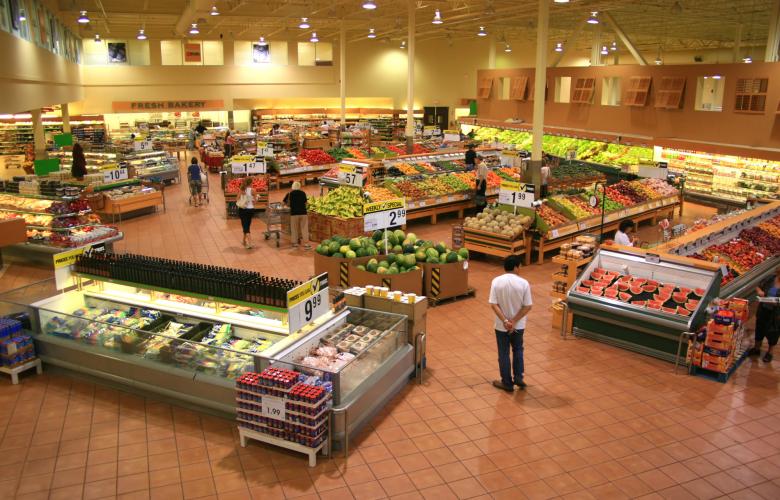Manufacturing sector still key to industrial, despite online retailing growth, says JLL
Contact
Manufacturing sector still key to industrial, despite online retailing growth, says JLL
JLL Research shows that despite the transport-logistics and retail sectors accounting for 60 per cent of total take-up of industrial floorspace in Australia in 2018, manufacturing still represents a significant proportion, with continuing growth for food and groceries.
Food and grocery distribution are set to be one of the major drivers of demand for industrial space going forward, according to JLL.
The agency's new report, The Strength of the Manufacturing Sector’indicates food retailing currently totals around $133 billion in Australia, with retail expenditure within the food category carrying implications for the industrial property market.
JLL Research shows that the share of gross take-up in industrial floorspace recorded within the Transport, Postal & Warehousing sector in Australia has averaged 33 per cent over the past five years.
At a glance:
- A new report from JLL has identified food and grocery distribution as one of the main drivers of demand for industrial space.
- The Strength of the Manufacturing Sector indicates food retailing currently totals around $133 billion in Australia.
- Figures show that Transport, Postal and Warehousing and Retail Trade accounted for nearly 60 per cent of the total take-up of industrial floorspace in Australia in 2018, while manufacturing accounted for 22 per cent.
Despite this, the manufacturing sector still represents a significant proportion of take-up levels, averaging 25 per cent over the past five years, as well as a considerable share of GDP.
Figures show that Transport, Postal and Warehousing and Retail Trade accounted for nearly 60 per cent of the total take-up of industrial floorspace in Australia in 2018, while manufacturing accounted for 22 per cent.
JLL’s Director, Industrial Research – Australia Sass J-Baleh said the manufacturing sector was evolving and becoming more advanced.
“What is key here is that the Australian manufacturing sector is larger and more diverse than assumed," she said.
“The decline in the textile industry in Australia over the past 20 years is a large factor contributing to an overall declining headline figure for the total manufacturing industry output.
"However, there are sub-industry sectors that have exhibited growth in the share of manufacturing production.
"The resilience of the sector is mainly owing to the relatively inelastic demand for food products, where consumers still require food in an economic downturn."
JLL’s Head of Capital Markets for Industrial & Logistics Australia, Tony Iuliano, said major manufacturing facilities that served the food industry were relatively resilient.
“There has been significant capital investment into cold storage, which is a growing sector that ultimately services the population," he said.
“Investment capital flows for the industrial sector will continue to drive yields to levels never seen before in this country."
The JLL Report states that manufactured products represent around 34 per cent of Australia’s total merchandised goods that are exported (by value).
Similar to this:
Australia's student accommodation progressing to operational phase - JLL
JLL appointed to manage world's tallest wooden office tower in Brisbane







